Balance Atlanta is affiliated with Rupa Health, a platform designed to simplify the process of ordering specialty lab work for our functional medicine patients. It serves as a unified portal for ordering, tracking, and obtaining results from over 30 lab companies, providing access to thousands of lab tests.
Rupa Health streamlines the lab testing experience, making it easier for patients to access high-quality, specialized tests. At Balance Atlanta, we use Rupa Health to order lab work quickly and efficiently. Patients can choose from a comprehensive range of diagnostic tests that help uncover the root causes of health issues, aiding in creating personalized treatment plans.





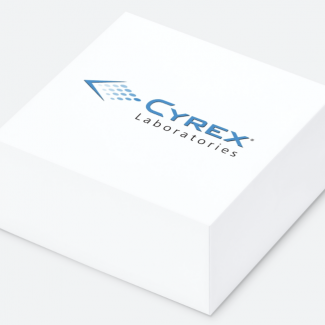
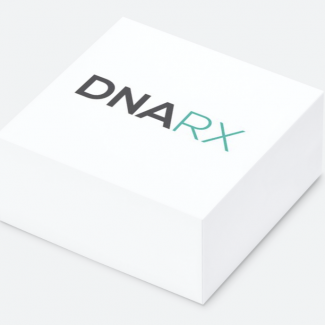
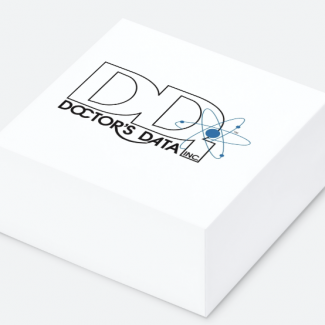


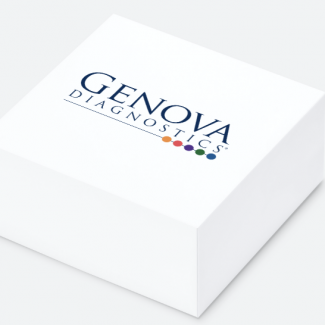





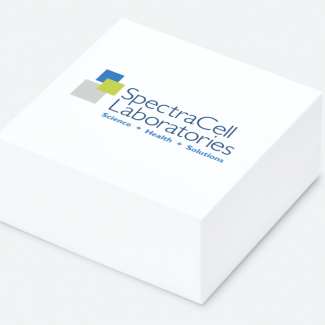
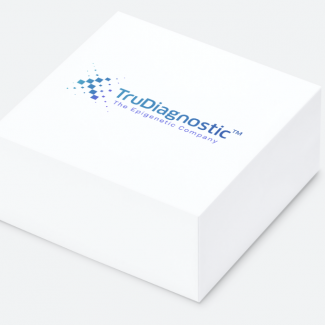

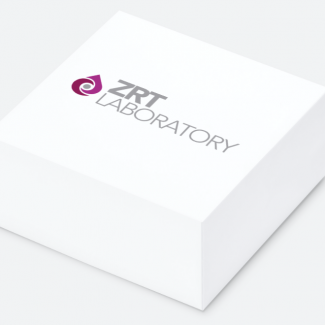
Rupa Health partners with over 30 leading lab companies, providing various functional and specialty testing for healthcare practitioners. This partnership allows clinics like Balance Atlanta to streamline the lab ordering process, making accessing comprehensive diagnostics for patients easy.
Rupa Health offers testing from leading specialty lab companies, including:
These labs provide tests for various health concerns, from hormone imbalances and gut health to genetic testing and environmental toxin exposure. If you would like to learn more, please contact Balance Atlanta to schedule a functional medicine consultation.
The Sleep and Stress Panel measures the levels of cortisol and melatonin in your body throughout the day to help identify any imbalances that may be affecting your sleep and stress levels.
The DUTCH Adrenal assesses adrenal hormones and their metabolites, including the daily free cortisol pattern. This test gives you and your healthcare provider insights into how your hormones are working and how hormonal imbalances may be impacting your health.
The Hormone and Urinary Metabolites Assessment Profile (HuMap™) looks at the hormones in your body and how they are metabolized to help identify hormonal imbalances.
The Adrenocortex Stress Profile is a saliva test that measures your levels of cortisol and DHEA. It helps you understand your body’s natural rhythm and if there are any imbalances in your HPA (hypothalamic-pituitary-adrenal) axis.
The Comprehensive Adrenal Function Profile measures cortisol, DHEA, and secretory IgA to help identify issues with your stress response and adrenal function.
The Adrenal Corticoids Profile measures the levels of adrenal hormones and their metabolites. Adrenal hormones are produced by your adrenal glands and regulate your body’s stress response. This test can help your healthcare provider determine if your adrenal glands are functioning properly.
The cortisol test measures the amount of cortisol in your body. Cortisol is a hormone that helps regulate your body’s response to stress. This test can help diagnose conditions such as Cushing’s disease, Addison’s disease, adrenal insufficiency, and clinical depression.
The Rhythm Plus™ test is a comprehensive salivary assessment that can help identify hormone imbalances in premenopausal and perimenopausal women. This version of the test also measures your CAR (cortisol awakening response) to help identify any issues with your body’s response to stress.
This test evaluates your body’s production of melatonin, a key hormone regulating sleep, by measuring its levels at three distinct times during the day. By analyzing these diurnal (daily) melatonin patterns, the test provides insights into how well your body maintains its natural sleep-wake cycle. Understanding these patterns is essential for identifying potential sleep disorders or disruptions in your circadian rhythm, and can guide strategies to improve sleep quality and overall health.
The Platinum Comprehensive Panel is a blood test that measures your body’s immune reactions to foods, herbs, molds, food additives/colorings, antibiotics, and anti-inflammatory agents. It can help identify which items may be causing an immune reaction in your body. It is not recommended for patients younger than six months of age.
The Mold Panel measures your body’s immune response to 15 different species of mold. This test can help identify molds to which you may be allergic and have adverse reactions.
This test measures your body’s immune response to common indoor and outdoor molds. It can help diagnose mold allergies.
This test measures your body’s IgE response to 86 common environmental allergens, including pet dander, mold, grasses, trees, and weeds. It can help identify which substances may be causing an allergic reaction.
This test measures your body’s IgE response to 36 common inhalant allergens, including grass and tree pollen, animal dander, and mold. It can help determine if you have any environmental allergies.
The Full Immunology Panel can help identify allergies and sensitivities to food, inhalants, molds, spices, and vegetarian foods.
The 250 Food Panel measures your body’s immune reactions to 250 commonly consumed foods. It can help identify which foods may be causing sensitivities in your body. This test is not available for patients younger than six months of age.
The 200 Food Panel measures your body’s immune reactions to 200 commonly consumed foods. It can help identify which foods may be causing sensitivities in your body. This test is not available for patients younger than six months of age.
The 100 Food Panel measures your body’s immune reactions to 100 commonly consumed foods. It can help identify which foods may be causing sensitivities in your body. This test is not available for patients younger than six months of age.
The 50 Medicinal Herbs, Functional Foods, & Adaptogens panel measures your body’s immune reaction to 50 common medicinal herbs, functional foods, and adaptogens. This test is not available for patients younger than six months of age.
The 40 Male Herbs panel measures your body’s immune reaction to 40 herbs commonly found in male supplements. This test is not available for patients younger than six months of age.
The 40 Environmental Chemicals, Preservatives, & Expanded Additives panel measures your body’s immune reaction to 40 environmental chemicals, preservatives, and additives. This test is not available for patients younger than six months of age.
This test measures your immune response to 15 common food additives and preservatives. This test is not recommended for patients younger than two years of age.
This test measures your body’s IgG response to 133 commonly consumed foods. It can help identify foods to which you may be sensitive. It does not identify food allergies.
The Celiac & Gluten Sensitivity profile looks at your body’s response to gluten by measuring the levels of specific antibodies in your blood. This helps to determine if you have celiac disease or gluten sensitivity.
The Autoimmune Comprehensive Profile can help detect if you have an autoimmune disease. It looks for markers connected to over 80 different autoimmune diseases.
The Autoimmune & Fatigue Screen measures markers associated with autoimmune disorders. It is used to help diagnose autoimmune diseases such as connective tissue disease, rheumatoid arthritis, and thyroid diseases.
This test measures your body’s immune response to common indoor and outdoor molds. It can help diagnose mold allergies.
The Intestinal Antigenic Permeability Screen (Array 2) helps determine if you have intestinal permeability. Intestinal permeability, or “leaky gut,” is a condition where the lining of your intestines becomes more permeable than normal and allows substances such as toxins, bacteria, and undigested food particles to pass through the intestinal wall and enter the bloodstream. This can lead to many health issues, including food allergies, autoimmune diseases, and digestive problems.
The Wheat/Gluten Proteome Reactivity & Autoimmunity Screen (Array 3X) is a blood test that can help identify if you have a wheat/gluten-related disorder. It can help diagnose wheat reactivity, non-celiac gluten sensitivity, Celiac disease, intestinal barrier damage, wheat-related autoimmunity, and other wheat/gluten-related conditions.
The Array 4 panel can help identify if you have a sensitivity to certain foods that cross-react with gluten and foods introduced as part of a gluten-free diet.
The Multiple Autoimmune Reactivity Screen (Array 5) is a blood test that measures predictive autoantibodies. Autoantibodies are antibodies produced by the body’s immune system that mistakenly attack healthy cells, tissues, and organs. They are a key feature of autoimmune diseases. The test assesses possible autoimmune-related tissue damage to multiple organs in your body.
The Expanded Neurological Autoimmune Reactivity Screen (Array 7X) is a blood test that can help detect neuro-autoimmunity, evaluate the severity of the autoimmune response, and monitor the effectiveness of related treatment protocols.
The Array 12 can help identify if your body is reacting to pathogens linked to autoimmune conditions. It can also be used to monitor the effectiveness of treatments for autoimmune-related pathogens.
The Mucosal Immune Reactivity Screen (Array 14) evaluates possible outcomes of compromised immune tolerance. Compromised immune tolerance is a condition in which the body’s immune system does not function properly and does not respond normally to antigens or foreign substances. This can lead to intestinal barrier dysfunction, food and chemical immune reactivity, and autoimmunity.
The ADHD Ultimate Panel is a comprehensive examination that checks various health factors related to Attention Deficit Hyperactivity Disorder (ADHD). The results from this test can provide important information to help understand and manage any health concerns related to ADHD.
This test looks at genetic variations that may be linked to your risk of developing a mood disorder. It can help your healthcare provider understand how your genetics influence your mental health.
The ADHD Premium Panel is a comprehensive examination that checks various health factors related to Attention Deficit Hyperactivity Disorder (ADHD). The results from this test can provide important information to help understand and manage any health concerns related to ADHD.
The ADHD Basics Panel is a comprehensive examination that checks various health factors related to Attention Deficit Hyperactivity Disorder (ADHD). The results from this test can provide important information to help understand and manage any health concerns related to ADHD.
This panel combines several individual tests to assess your overall cognitive health.
The Alzheimer’s LINX™ can help identify your risk of developing Alzheimer’s disease or other neurological disorders. It can also help identify the early stages of neurodegenerative processes and monitor the effectiveness of lifestyle modifications for Alzheimer’s disease.
The Comprehensive Neurotransmitter Profile investigates how your body produces and breaks down neurotransmitters. Neurotransmitters are chemicals in the brain that help regulate mood, energy, and other functions. This test can help identify any imbalances in your neurotransmitter levels that may be contributing to symptoms such as fatigue, anxiety, or depression.
This test measures your lipids and other markers in your blood to help assess your risk of developing heart disease. It combines traditional and advanced laboratory tests to give your healthcare provider a better understanding of your health. This test is not available for patients under the age of 2.
The LPP Plus measures lipoproteins in your blood to assess your risk of developing cardiovascular disease. This test is not recommended for patients under 18 years of age.
The Comprehensive Lipid Panel is a blood test that measures the levels of lipids (fats and cholesterol) in your body. It is used to help diagnose and monitor conditions such as high cholesterol and diabetes. This test can also help your doctor assess your risk of developing cardiovascular disease.
The Long COVID Panel is used to detect three viruses that have been linked to long COVID and autoimmunity. It looks for increased levels of antibodies against these viruses to help determine the severity of long COVID.
This panel combines the 36 Organic Acids Profile and Environmental Pollutants Profile (EPP). The 36 Organic Acids Profile measures 36 organic acids in your urine to identify how well your body obtains and utilizes nutrients. The Environmental Pollutants Profile measures the levels of certain toxins in your body to identify your toxic burden.
The MycoTOX Profile is a comprehensive test that can help identify the presence of eleven different mycotoxins in your body. Mycotoxins are toxic substances produced by certain types of mold.
The Environmental Pollutants Profile measures the levels of certain toxins in your body to identify your toxic burden.
This test measures the amount of glyphosate in your urine to determine glyphosate exposure. Glyphosate is a toxic chemical found in many herbicides, including Roundup™.
This profile can help identify hormonal imbalances that may be causing weight gain, slowed metabolism, increased body fat, and food/sugar cravings. It includes additional biomarkers to help your healthcare provider better understand your overall health.
The FindWhy™ Weight Control test looks at your DNA to identify if you are genetically predisposed to weight gain. This test can help your healthcare provider create a personalized weight loss plan for you that is more likely to lead to lasting results. This test does not guarantee weight loss, nor does it definitively suggest one diet over another.
The DUTCH Cycle Mapping™ PLUS is a comprehensive test that looks at your hormones throughout your menstrual cycle. It measures your estrogen, progesterone, and other hormone metabolites, as well as your cortisol awakening response (CAR). This test can help identify the root cause of recurring concerns such as fertility issues, PCOS, and other monthly symptoms. It can also provide insight into your body’s ability to cope with stress and how resilient your hormones are.
The DUTCH Plus™ is a comprehensive test that assesses your sex and adrenal hormones and their metabolites. It also looks at your Cortisol Awakening Response (CAR). This test can help you and your healthcare provider understand how your hormones are functioning and how they may be impacting your overall health.
The Menopause Plus™ test can help identify issues related to menopause and other hormone imbalances.
The One Day Hormone Check™ evaluates your hormone levels over 24 hours. It can help your healthcare provider identify hormonal imbalances and understand how your body responds to stress.
The vaginal microbiome is the community of microorganisms that live in and on the skin of the vagina. These microorganisms are essential to maintaining a healthy vaginal environment and help to protect the vagina from infection, inflammation, and other health problems. The Vaginal BiomeFx helps identify the types of microorganisms in your vaginal microbiome.
The Male Hormones Plus™ test measures the level of testosterone in your body and how cortisol, DHEA, and melatonin affect it. This test can help identify hormonal imbalances that may be impacting your health.
The Male Extended Cancer Panel looks for markers of liver, testicular, pancreatic, gastrointestinal, and prostate cancers.
The Female Extended Cancer Panel looks for markers of liver, pancreatic, gastrointestinal, breast, and ovarian cancers.
The Microbiomix test is a comprehensive gut health assessment that assesses bacteria, fungi, protists, and archaea to evaluate your gut microbiome. The results can help your healthcare provider create a personalized plan to improve your gut health.
The Intestinal Permeability Assessment measures the ability of two sugar molecules to pass through the lining of your small intestine. It is used to assess the function of your small intestinal barrier and to help diagnose malabsorption and intestinal permeability/leaky gut.
This test helps identify imbalances in your gut microbiome. It also tests how susceptible certain bacteria and fungi are to certain medications and natural treatments. By analyzing your microbiome, this test can guide your healthcare provider in creating a personalized treatment plan for healing your gut.
The GI360™ is a comprehensive test that looks for pathogens, viruses, parasites, and bacteria in your gastrointestinal system. It can help identify issues with your gut health.
The Comprehensive Stool Analysis + Parasitology (CSAP) test helps determine the cause of your gastrointestinal symptoms. It measures markers of digestion, absorption, and inflammation and looks for bacteria, parasites, and other pathogens. The test also includes antimicrobial susceptibility testing to help determine the best treatment for you. Please note that this is a 3-DAY sample collection.
The Comprehensive Stool Analysis (CSA) test helps determine the cause of your gastrointestinal symptoms. It measures markers of digestion, absorption, and inflammation and looks for bacteria and other infectious pathogens. The test also includes antimicrobial susceptibility testing to help determine the best treatment for you.
The Culture, PCR + Parasitology (CPP) profile can help identify imbalances in your gut microbiome. It looks for the presence of beneficial, imbalanced, and dysbiotic bacteria, as well as any infectious pathogens or parasites. It also tests how well certain antibiotics will work against any bacteria or parasites that are found. Please note that this is a 3-DAY sample collection.
The Candida Profile measures your body’s immune response to Candida albicans. This test can help identify if you have a Candida infection.
The MTHFR Genotyping test determines if you have a genetic variation that affects your ability to process folate, a type of vitamin B. Genetic variants in the MTHFR gene may put you at an increased risk for cardiovascular disease.
The MethylDetox Profile looks at genes involved in the methyl detoxification pathway and homocysteine metabolism. It can help identify genetic variations that can lead to chronic conditions such as cardiovascular disease and neurodegenerative disorders.
The DetoxiGenomic® Profile looks at your genetic makeup to help identify your risk for chemical sensitivities and oxidative stress and your body’s ability to handle various medications.
The TruAge Complete Collection is a comprehensive test that can help you understand your biological age. It includes a variety of reports that measure different aspects of your health and compare them to your chronological age.
The DNA RX Wellness Panel can help you understand how your unique genetic makeup affects your overall wellness. It provides insight into your potential for food intolerances, nutrient deficiencies, and neurotransmitter imbalances. The results of this test can help you make informed decisions about your diet, nutrition, and further testing.
The Lyme ImmunoBlot IgG + IgM looks for antibodies to the bacteria that cause Lyme disease. IgM antibodies are present as early as one week after a tick bite and will usually remain positive for six to eight weeks after initial exposure. IgG antibodies are present a few months after initial exposure. This test can help diagnose Lyme disease and provide information about how long you have been infected.
The Epstein-Barr Virus (EBV) Panel looks for antibodies to Epstein-Barr Virus in your blood. It can help determine if you have had a past infection, primary reactivation, or re-infection with Epstein-Barr Virus.
The NutrEval® Plasma is a comprehensive test that investigates vitamins, minerals, fatty acids, and other biomarkers to help identify any nutritional deficiencies or imbalances you may have. This test cannot be ordered for patients under two years of age.
The Organix® is a comprehensive test that can help identify issues with your body’s metabolic pathways. It looks at nutrient status, organic acids, and other cellular metabolic processes. This test is not recommended for patients under two years of age.
The Organic Acids Test (OAT) is a comprehensive test that provides valuable insight into your overall health. It can help identify issues with your gut health, nutrient deficiencies, neurotransmitter levels, and more.
The Redox/Antioxidant Protection Assay measures the overall antioxidant function of your immune system. It can help identify specific antioxidants that may be beneficial to improve your antioxidant function and overall health.
The Comprehensive Screen is a blood test that looks at thyroid, nutritional, metabolic, and hematologic markers to help your healthcare provider assess your overall health.
The Metals Combo Test is a comprehensive test that assesses the levels of nutrient and toxic elements, including mercury, in your body. It can help identify any potential exposure to toxic elements and whether or not you have any nutrient element deficiencies.
This test is a noninvasive test that requires only a small sample of your hair. It checks for any imbalances in the levels of essential and toxic elements in your body to help identify any potential issues with your metabolism.
The Urine Toxic & Essential Elements Profile can help identify if you have been exposed to potentially toxic elements or if you are not getting enough of the essential elements your body needs. Your healthcare provider will tell you how long your sample collection should be.
This panel assesses the levels of toxic and essential elements in your blood. It can help identify exposure to toxic elements like lead and mercury and imbalances of essential elements like calcium, sodium, and potassium.
The Omega-3 Index Complete test is a blood test that measures the levels of different fatty acids in your body. It can help you understand your dietary intake of fatty acids and if you need to make any changes to your diet to improve your fatty acid levels.
The NutrEval® FMV is a comprehensive test that investigates vitamins, minerals, fatty acids, and other biomarkers to help identify any nutritional deficiencies or imbalances you may have. This test cannot be ordered for patients under two years of age.
The Metabolomix+ is a comprehensive test that looks at important nutritional biomarkers in your body to help identify any potential nutritional deficiencies or imbalances. This test is not available for patients under two years of age.
The Micronutrients Test measures the levels of over 30 vitamins, minerals, and other nutrients in your body. This test can help identify any nutritional deficiencies or abnormalities affecting your health. This test is not recommended for patients under 12 years of age.